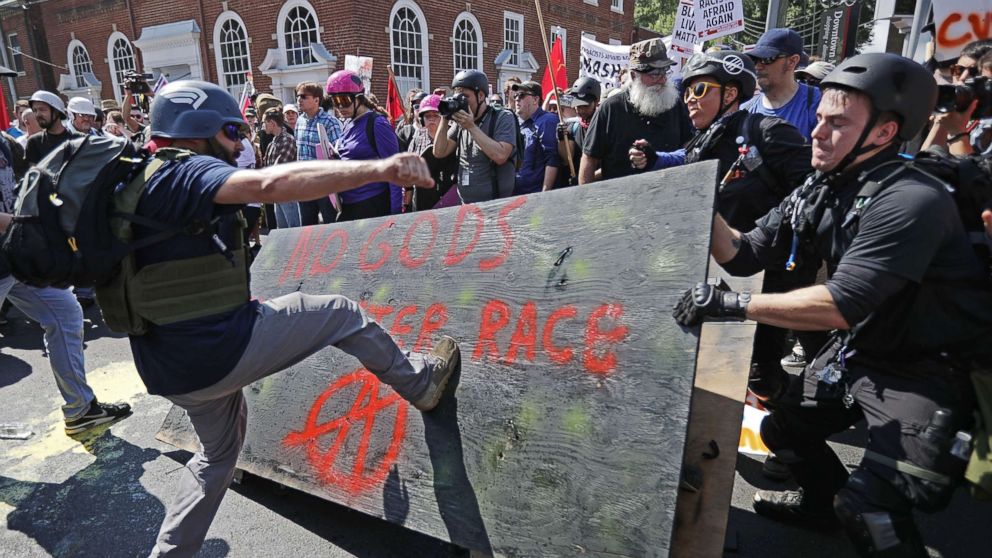Eclipses have come at dark times in US history, but we can find the light
"Maybe you have to know the darkness before you can appreciate the light."

— -- "Darkness cannot drive out darkness: only light can do that. Hate cannot drive out hate: only love can do that," a famous refrain from Martin Luther King Jr. reads.
The United States is about to experience something it has not seen in nearly 100 years: a total solar eclipse stretching from coast to coast. As with the last total eclipse of the sun, the country is already experiencing dark times.
It was June 8, 1918, when we in this country last saw this type of eclipse — a moment when U.S. forces suffered 9,777 casualties on the western front of World War I in the horrific battle of Belleau Wood, as they pushed back a late German offensive. Little did those Marines know that, despite those massive losses, it would be only a few months until the Great War would finally end and light would shine again on our planet.
As Madeleine L'Engle wrote, "Maybe you have to know the darkness before you can appreciate the light." But even her books, filled with beautiful words that touched many people, were banned for many years.
Watching the tragic events of Charlottesville, Virginia, this past week and saddened by a president who abdicated any moral authority in the midst of it, I realize our country, while having the best of ideals and people, often experiences an eclipse of that light by dark moments in our history.
Looking back over the expanse of our shared American experience, we see times of darkness — oppression, wars, discrimination, riots and hate. To list just a few: slavery, Jim Crow, religious persecution, mistreatment of women and children, genocide of Native Americans, internment of Japanese-Americans, the Know-Nothing movement and the Civil War.
From my experience as an Irish Catholic from Detroit, I have seen evidence of these injustices. My ancestors felt discrimination because of their Irish heritage, the religion they practiced, and as a young child, I witnessed the devastation of the Detroit riots.
We and our country do not have to be defined by our dark moments, but we must learn from them and continue on a path, as the Constitution says, to "a more perfect union."
Though we should expect light to break through, even as good people, we will be part of some darkness. We each stumble and fall, and we each have our own biases. Often we choose fear over love and slip into division instead of unity. But we shall — and we must — overcome.
We must also understand that our ideals and democracy are gifts; they are not a given. It takes good people reminding others, through both words and deeds, that we must move forward to reach the promised land of love and justice.
The best of us was also revealed as we watched Charlottesville. Heather Heyer died fighting for justice and freedom. Her parents spoke to our hearts about forgiveness and calling us to that light even in the midst of their devastating sadness, the darkness of losing a child. And many good citizens stood up with candles of compassion, instead of torches of intolerance, as beacons on a dark night. CEOs stood up and said enough is enough. They spoke out against a president who doesn't seem to understand who we are as a country and what is most valuable in this experiment called America.
At the same time, I was disappointed to see that not one member of President Trump's Evangelical Advisory Council resigned, even as his business councils disbanded after the resignation of several CEOs. It seems business leaders showed more of a moral compass than the religious leaders surrounding Trump. At the same time, I was heartened to see religious leaders outside this circle walk arm in arm against hate.
The total eclipse will fade quickly next week, and we will enjoy the light our sun offers. We will also get through this moment and emerge with our wounds bandaged and the will to reform and heal our brokenness. I have faith that we will show a strong force of love to push out the hate.
As Desmond Tutu said, "Hope is being able to see that there is light in all the darkness."
Matthew Dowd is an ABC News analyst and special correspondent. Opinions expressed in this column do not necessarily reflect the views of ABC News.



